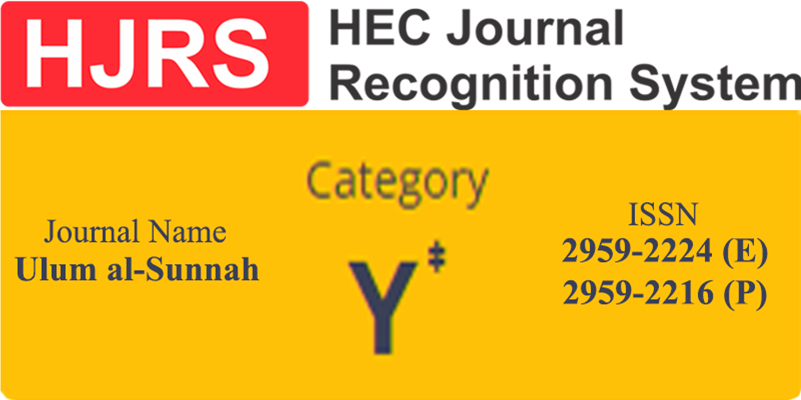Mental Health and Spiritual Well-Being in the Qurān: Addressing Modern Psychological Challenges through Islamic Teachings
Keywords:
Tawakkul, Sabr, Shukr, Dhikr, Islamic practices, Mental health, Tazkiyah, Islamic PsychologyAbstract
The study explores the link between Islamic teachings and mental well being. Islamic practices like Tawakkul (reliance on Allah), Shukr (gratitude), Sabr (patience) and Dhikr (remembrance of Allah) are foundations to develop psychological well being and spiritual development. The practical teachings are based on Qur’an and Sunnah which help individuals to compete with depression, anxiety, adverse circumstances and multiple adverse challenges in life. The Islamic concept Tawakkul develops trust in Allah’s will and wisdom and decrease stress and depression like feelings, Sabr improve emotional regulation and consistency during life difficult challenges and adverse circumstances. The other Islamic concept Shukr is linked with positive psychology that increases mental well-being and satisfaction. Moreover, Dhikr helps to develop spiritual grooming and keeps the heart alive, active and connects man with its creator. Furthermore, Islamic practices like Salah (prayer), Sawm (fasting), and Zakat (charity) maintain systematic ways of sustainability and grooming mental well being and incorporate discipline, social connectedness and empathy among individuals and societies. The practical application of Islamic teachings in daily life works as modern psychological frameworks. Cognitive-behavioral therapy (CBT) shows the role of practical application in maintaining mental health. The study also focuses on other important Islamic concepts like Tazkiyah (soul purification) and Ihsan (excellence in worship) which play their roles to improve emotional resilience and self-awareness during difficulties and hardships. Islamic teachings provide deep understanding to manage mental health with spiritual guidance and awareness. The practical strategies develop people in maintaining mental stability, spiritual fulfillment, and emotional well-being in the contemporary world.
Downloads
Published
How to Cite
Issue
Section
License
Copyright (c) 2024 Dr. Hafiz Faiz Rasool, Dr. Abdul Aziz, Mehwish Kiran

This work is licensed under a Creative Commons Attribution-NonCommercial 4.0 International License.
This is an open-access journal which means that all content is freely available without charge to the user or his/her institution. Users are allowed to read, download, copy, distribute, print, search, or link to the full texts of the articles, or use them for any other lawful purpose, without asking prior permission from the publisher or the author. All articles are available on the internet to all users immediately upon publication. Non-commercial use and distribution in any medium are permitted, provided the author and the journal are properly credited.










 Research Journal Indexed by Google Scholar
Research Journal Indexed by Google Scholar